Annual Report
Fiscal Year 2022



In November 2021, I was honored to be named the inaugural president of Heterodox Academy. My first year was marked by learning, reorganizing, and pivoting to impact.
First, I learned how HxA built a wide network of engaged members over the organization’s first five years. Then, we reorganized the HxA team to play a faster, more “boots on the ground” role on campuses, including hiring staff with faculty and resear ch experience at universities. Now, HxA is pivoting to more direct and sustained activities with our members, notably with the launch of the HxA Campus Communities Network.
As our 2022 Annual Report shows, it has been a year of high activity. We have:
Achieved more than 13 million views of our content to our audiences, which includes essays published on our blog, and events and podcasts with our members, all of which carry HxA’s messages about the importance of viewpoint diversit y, open inquiry, and constructive disagreement
Fostered greater connections among our members across our 26 HxCommunities, our new online discussion portal, and our sold-out national conference in Denver
Curated and developed actionable strategies and practices to help our members change academic culture for the better through the publication of our landmark best practices guide: Reclaiming the Culture of Higher Education
Funded research projects to understand the challenges of promoting HxA values on campuses and to test specific interventions aimed at positive culture change on campus
To continue moving the needle on higher education campuses, HxA requires a new depth and concreteness of engagement. As I declared at our annual conference in Denver, HxA’s size and reach are only a fraction of what will be necessary to transform a fast-changing academy. To truly create change, HxA must begin building institutional capacity directly on campuses.
As I write this, the next stage of HxA’s development is already underway. Our team is:
Deepening our intellectual work and sharpening our communications to broaden HxA’s impact
Developing the HxA Campus Communities at carefully selected colleges and universities across the United States and Canada, empowering our members to work together in groups to drive positive culture change on the campuses they know best
Growing our membership to expand the reach and influence of HxA ideas (with a dedicated push into STEM) and crafting a suite of new tools to enable our members to collaborate with one another more quickly and effectively
Every week, I speak to professors, students, and college leaders who want to work to create an academy they love: a place to follow curiosity, seek the tru th, and speak honestly across our differences. Our job at HxA is to activate academic idealists and empower them to make positive change.

We’re just getting started, and we’re grateful for your support.
Sincerely,
John Tomasi President, Heterodox AcademyHxA is the world’s largest member organization of university pr ofessors, students, and administrators committed to promoting the ideals of viewpoint diversity, open inquiry, and constructive disagreement on campus. We see the university as a place where diverse scholars and students can approach questions, ideas, and problems from d ifferent perspectives in pursuit of knowledge, discovery, growth, and innovation.
Too often, scholars and students fear that challenging prevaili ng ideas will lead to shame, ostracism, or social and professional retaliation. According to HxA’s recent Campus Expression Survey , 87% of students highly value viewpoint diversity on campus, but 64% of students report that the climate on their campus prevents people from saying what they believe.
Colleges are intended to be institutions that foster creative and innovative thinking. Yet they have become increasingly characterized by orthodoxy in what types of questions can be asked and the perspectives that can be shared. To solve society’s biggest problems, we must innovate, which requires institutions where students and faculty can draw on a range of ideas, perspectives, and paths of inquiry. Today’s students are tomorrow’s leaders after all.
Heterodox Academy believes that the best way to fulfill our vision of the academy is by working to cultivate an academic culture underpinned by the core principles of viewpoint diversity, open inquiry, and constructive disagreement. We can achieve this impact by doing research, engaging thought leadership, activating our members, and working locally on college campuses.
Join us.
To improve the quality of research and education in universities by increasing open inquiry, viewpoint diversity, and constructive disagreement.
What it is: Viewpoint diversity is when problems or questions are approached from a range of perspectives and personal backgrounds (e.g., racial, socioeconomic, geographical, religious, political, gender, etc.).
Why it matters: When academic environments lack sufficient viewpoint diversity, assumptions go unchallenged, promising ideas go underexplored, and it can be difficult to understand or engage with those of different backgrounds.
What results: When a community is marked by intellectual humility, empathy, trust, and curiosity, viewpoint diversity gives rise to engaged and respectful debate, constructive disagreement, and shared progress toward truth.
What it is: Open inquiry is the ability challenge existing orthodoxy without
Why it matters: When academic environments to inquiry, knowledge can be suppressed interests, innovation can be stifled, can be impeded, and intellectual growth
What results: In an environment that the community can explore facts, opinions, create important innovations; solve problems;
ability to ask questions, share ideas, and without risk of censure.
environments are insufficiently open suppressed for the benefit of spec ial stifled, progress on important problems growth can be stunted.
that is sufficiently open, members of opinions, and beliefs; discover and problems; and flourish intellectually.
What it is: Constructive disagreement occurs when people who have different perspectives on an idea or issue are committed to collaboratively exploring and learning something from one another.

Why it matters: Learning from our differences, and modeling how to engage despite them, is the foundation of healthy academic practice, and indeed of democratic society itself.
What results: Rigorous, open, and responsible engagement across lines of difference is essential to separate good ideas from bad, and to make good ideas better.
Heterodox Academy embraces a set of norms and values that we call “The HxA Way.” We encourage our members to embody these in all of their professional interactions, and we insist on these norms and values for those publishing on our platforms or participating in our events.

Heterodox Academy (HxA) is led by scholars, civic leaders, and business professionals who are all dedicated to improving our higher educational institutions, and practice the HxA way in their work.
Team
John Tomasi, D.Phil., President
Michael Regnier, Executive Director
Christine Richards, DirectorofMembership
Kyle Vitale, Ph.D., DirectorofPrograms
Nicole Barbaro, Ph.D., DirectorofCommsandMarketing
Musa al-Gharbi, Daniel Bell Research Fellow
Mary-Lynn Hearn, OperationsManager
Michael Dinsmore, DonorRelationsManager
Malik Peacock, DevelopmentSpecialist
Oscar Avendano, Communications Associate
Steven Zhou, DataAnalyst
John Fernandes, DevelopmentAssociate
Xav de Souza Briggs, Ph.D.
David A. Brooks
Taffye Benson Clayton, Ph.D.
Nicholas A. Christakis, Ph.D., M.D.
Ronald A. Crutcher, Ph.D.
Alice Dreger, Ph.D.
Robert P. George, D.Phil., J.D.
Diane F. Halpern, Ph.D.
Pano Kanelos, Ph.D.
Randall Kennedy, J.D.
Glenn C. Loury, Ph.D.
Irshad Manji
Lynn Pasquerella, Ph.D.
Eboo Patel
Jonathan Haidt, Ph.D., Chairman
Steven Laub, J.D., Treasurer
Tony Banout, Ph.D.
Jeffrey S. Flier, M.D.
Kathleen O’Connor, J.D.
Kate Stith, Ph.D.
Judith R. Shapiro, Ph.D.
Richard A. Shweder, Ph.D.
Nadine Strossen, J.D.
Cornel West, Ph.D.
*Stats and numbers provided throughout this report are from the FY2022 period of September 1, 2021, through August 31, 2022, unless otherwise noted.
Everything we do at Heterodox Academy (HxA) is in service of our mission to improve the quality of research and education in universities by increasing open inquiry, viewpoint diversity, and constructive disagreement. To achieve our mission and succeed in creating an academic culture where all approach questions, ideas, and problems from different perspectives, our team’s work focuses on the following four areas.
No organization in the history of American academic life has done, or is doing, more to promote viewpoint diversity that we urgently need in higher education today than Heterodox Academy.
—Robert George, Legal Scholar and Political PhilosopherResearch is an essential foundation to achieving meaningful and positive change in the academy. Each year, we conduct the Campus Expression Survey to gather important data on the state of campus expression by students, in addition to amplifying mission-oriented research on our HxA Blog.
We believe that working locally — with our members on their college campuses — is the best path to achieve our vision for the academy. HxA provides support, tools, and resources to help members engage in work to promote HxA values in their disciplines and on their campuses, putting our mission into practice.
Achieving true culture change on today’s college campuses requires bringing the HxA mission to the forefront of public and scholarly conversation. HxA works to elevate the voices of our team and our members in the national media and on our own channels to demonstrate the wide value of heterodox thinking in the academy.
Our members are our strongest asset in creating an academic culture in which viewpoint diversity and open inquiry are explicitly valued in the pursuit of knowle dge, discovery, growth, and innovation. We work with our HxA members to organize events, workshops, and communities to amplify their unique voices.

Heterodox Academy is working toward a future in which viewpoint diversity, open inquiry, and constructive disagreement are explicitly valued on college camp uses. Through our annual Campus Expression Survey, we are able to provide data that charts progress from the student perspective and is one indicator whether these core principles are being valued in classrooms across the country.
32,000 views of the CES page on our website in 2022
1,495 student respondents for the 2022 CES
3 years that HxA has been running the CES
Nearly 1,500 full-time college students (ages 18 to 24) across the United States (stratified by region, race, and gender based on proportions reported by the National Center for Education Statistics) shared their experiences expressing their perspectives in their classrooms. Here’s what they said:
Overall, 60% of college students expressed reluctance to discuss at least one controversial topic (e.g., politics, religion, race, sexual ori entation, and gender), similar to last year’s numbers.
Students who reported having low interaction quality with classmates (i.e., not much opportunity to get to know other students) also reported greater reluctance to discuss all five of the core controversial topics. This finding suggests that, in the future, professors may facilitate more critical conversations if they also facilitate students getting to know one another.
Students’ political party and race/ethnicity seem to play a role in how reluctant they are to discuss a number of controversial topics, with Republican and Independent students and white and Asian students being most reluctant.
There are a number of feared consequences (e.g., being criticized as offensive) that seem to prevent some students from discussing controversial topics in class. However, when students were asked what they would do if a classmate expressed an opinion they strongly disagreed with, the overwhelming response was to ask questions to understand the other student’s opinion better.
We bring research conversations out of academic journals and into the public profile
“The Self-Censorship Crisis in Higher Ed: How Accurate Is the Data?”
“The Self-Censorship Crisis in Higher Ed: How Accurate Is the Data?”

Steven Zhou, Shelly Zhou, John Wilson | April 20, 2022
HxA published a dialogue between John Wilson, HxA Writing Fellow and critic of campus self-censorship research, and two members of Heterodox Academy’s research team, Shelly Zhou and Steven Zhou, who produced HxA’s 2021 CES, about the utility of self-reported student data on campus self-censorship.
Wilson argued that survey research is incapable of accurately measuring self-censorship, while Zhou and Zhou argued that self-censorship can be measured, exists on college campuses, and is not simply explained away as social norms or common courtesy.
Read part 1 of the dialogue
Read part 2 of the dialogue
profile through the HxA blog, which was viewed more than 188,000 times in FY2022.
Eric Kaufmann | March 30, 2022
The NewYorkTimes claims that America has a free speech problem, but many dispute whether cancel culture is an elephant or a flea. Kaufmann’s research finds that the answer lies somewhere in between.
Read
Kevin Singer, Sam Ludlow-Broback | March 2, 2022
One key attribute that differentiates Generation Z’s approach to viewpoint diversity is their distrust toward institutions. Instead of leading with institutional clout, faculty and staff should consider how they might empower students toward a grassroots effort to appreciate viewpoint diversity on campus.
“Selecting and Surviving Your Graduate Program: Tips Based on a Recent Heterodox Academy Survey”
Samantha Hedges | December 8, 2021
Read
The HxCommunities Flexible Funding Opportunity (FFO) supports the important work HxA members are doing to advance viewpoint diversity, open inquiry, and constructive disagreement in education locally on their campuses and within their professional communities.
The FFO program invested $380,000 across 24 grants to support member projects across 13 HxCommunities.
The HxCommunities FFO was made possible through the support of a g rant from the John Templeton Foundation. The opinions expressed by funded programs, projects, or events are those of the individual grantees, organizers, speakers, present ers, and attendees of such events/activities and do not necessarily reflect the views of He terodox Academy and/or the John Templeton Foundation.
Project Leads: HxNew Zealand Community Participants
Impact: Design, administration, and publication of a campus expression survey across the five largest universities in New Zealand.
Growing Diversity of Thought in K–12 Education: Current Challenges and the Path Ahead
Project Lead: Christina LaRose, Researcher at the University of Illinois Urbana-Champaign | HxK–12 Education Community
Impact: An online conference with more than 150 attendees and online dissemination of the talks.
The Views of Scientists, Engineers, and Professional School Faculty About Diversity, Equity, and Inclusion Policies
Project Lead: Steven Brint, Distinguished Professor of Sociology and Public Policy, University of California, Riverside | HxSociology Community
Impact: Ongoing research study of STEM scholars’ views on the implementation of diversity, equity, and inclusion policies.
Project Lead: Irshad Manji, Founder, Moral Courage ED | HxK–12 Education Community
Impact: Distribution of Don’t Label Me: How to Do Diversity Without Inflaming the Culture Wars, by Irshad Manji, Moral Courage founder and Oxford University fellow, to 2,000 school leaders in collaboration with the nonprofit LetGrow.
Heterodoxy in Canada
Project Lead: Martin Drapeau, Professor of Psychology and Psychiatry, McGill University | HxCanada Community
Impact: Hosting of the first Canadian conference on viewpoint diversity in academia on April 22, 2022, at McGill University in Montreal and virtually, in addition to designing surveys to evaluate campus expression in Canada.
Critical Thinking Across the Disciplines: A High School Course
Project Lead: William Reusch, Social Studies Teacher, Shalhevet High School, Los Angeles | HxK–12 Community
Impact: The creation of a semester-long course that high school teachers and administrators can adopt and implement in their school or district.
Project Leads: Christopher Dummit, Professor, Canadian Studies, Trent University, and Zachary Patterson, Associate Professor, Concordia Institute for Information Systems Engineering, Concordia University, Montreal | HxCanada Community
Impact: The development of an opinion poll of Canadian university professors and the Canadian public to gauge support for heterodox values.
UDelEngage:
Engaging College Students with Civic Engagement and Discourse at a Pivotal Point in Their Development as Citizens
Symposium on the Ethics of Freedom of Speech
Project Lead: John Hasnas, Professor of Ethics, McDonough School of Business, Georgetown University| HxPhilosophy Community
Impact: Presentation of a symposium on November 19, 2021, and subsequent publication in a Georgetown University public policy journal.
Project Lead: Lindsay H. Hoffman, Associate Professor, Communication, University of Delaware | HxCommunication Community
Impact: Cultivating opportunities on the University of Delaware campus to model civil dialogue through symposiums, research, and the creation of tools to help other campus leaders.
Project Lead: Kevin Marinelli, Executive Director, Program for Public Discourse, University of North Carolina at Chapel Hill | HxHumanities Community
Impact: The creation of a program for public discourse and deliberation program directors from campuses across the country in the effort to advance a robust framework of rhetorical and deliberative pedagogy.
Project Leads: Mike Weaver, Director of the Bradley Study Center at Virginia Tech, and Ellington Graves, Director of Africana Studies in the Department of Sociology and Assistant Provost for Diversity and Inclusion at Virginia Tech | HxHigher Ed Leadership Community
Impact: Professors Robert George, Princeton University, and Cornel West, Union Theological Seminary, engaged in a public conversation on the Virginia Tech campus on March 17, 2022, focusing on the importance of both free speech and civil discourse.
Project Leads: Jane Fenton, Reader and Associate Dean for Learning and Teaching, School of Education and Social Work, University of Dundee, and Mark Smith, Professor of Social Work, School of Education and Social Work, University of Dundee | HxSociology Community
Impact: The hosting of a campus research event discussing their campuses’ results of the HxA Campus Expression Survey to foster discussion of HxA’s core principles.
Project Lead: Robinder Bedi, Associate Professor, Department of Educational and Counselling Psychology, and Special Education, University of British Columbia | HxCanada and HxPsychology Communities
Impact: The creation of a speaker series in the Counselling Psychology Program Area at the University of British Columbia designed to counter the growing reluctance to openly discuss controversial topics or admit willingness to learn about unpopular viewpoints.
Project Lead: James Kierstead, Senior Lecturer in Classics, Victoria University of Wellington | HxClassics Community
Impact: The hosting of a dinner workshop that allowed community participants to take stock of the current prospects for viewpoint diversity in their field and to strategize about actionable next steps to further support it in the future.
Project Lead: Jeffrey Breneman, Vice President for Government Relations, Western Michigan University | HxHigher Ed Leadership Community
Impact: Engage WMU campus members and Kalamazoo community members in interactive educational opportunities that promote civil discourse, viewpoint diversity, and free speech rights and responsibilities through the We Talk initiative that has reached more than 1,000 people in the past three years.
Mid-Atlantic Dialogue Workshops, Skill-Building, and Campus Expression
Project Leads: Joseph Bubman, Adjunct Faculty, Environmental Studies, Georgetown University, and Kira Hamman, Assistant Teaching Professor, Mathematics, Penn State University–Monto Alto | HxMid-Atlantic Community
Impact: Hosting Dialogue Across Difference workshops and Difficult Conversations skills classes for students, and sharing the lessons learned among educators and administrators.
Navigating Diverse Perspectives Related to Social Identity and Belonging at Brigham Young University
Project Leads: Jeff Glenn, Assistant Professor, Department of Public Health, Brigham Young University, and Cougar Hall, Professor, Department of Public Health, Brigha m Young University | HxHealth Professions Education Community
Impact: A partnership with Living Room Conversations helped organize a series of on-campus conversations in which students with diverse perspectives participate in structured dialogues around divisive public health-related topics, and receive training on how to facilitate such conversations for other BYU campus events.
Project Lead: Geoff Sharrock, Honorary Senior Fellow, Melbourne Graduate School of Education, University of Melbourne | HxAustralia Community
Impact: Administering up to 20 interviews, hosting two workshops, and writing a discussion paper to identify current and emerging challenges to viewpoint diversity in Australian universities with the goal of actionable strategies to improve policy and practice in this area.
Engaging with Netflix’s TV Series
A Guide for Moving Forward
Project Leads: Terry Newman, Course and Andy Sellwood, Instructional Community
Impact: A project to turn the Netflix a lecture guide for the HxA community exist among faculty, and introduce diverse viewpoints.
Public Health Across the Aisles: Issues, Perspectives, and Politics
Project Lead: Kelly Anthony, University of Waterloo | HxCanada Community
Impact: Hosting of the event ‘‘Moving Forward by Slowing Down: Considering Diverse Perspectives on Drug Decriminalization and Legalization” to showcase a more complex and nuanced view of what options of decriminalization, medicalization, and legalization of controlled substances could look like in North America.
Project Lead: Nicola Watson, Lecturer, Robert Gordon University | HxCommunication Community
Impact: A four-day summer symposium with academics that includes discussions and workshops that help encourage open inquiry into barriers faced in creative freedom.
The Science and Politics of Journal Retractions: A Conversation with Ivan Oransky (Retraction Watch)
Project Lead: Siddhartha Roy, Research Scientist, Virginia Tech | HxEnvironmental Engineering and Science (HxEES) Community
Impact: Hosting of an event with Siddhartha Roy, HxEES moderator, and Ivan Oransky, co-founder of Retraction Watch, on research integrity, the self-correcting (?) nature of science, and the scientific and political reasons guiding or obstructing journal retractions.
Series The Chair the Heterodox Way: Course Lecturer, McGill Writing Centre, McGill University, Associate, Vancouver Community College | HxCanada
Netflix TV series The Chair into a plug-and-play tool with community to open discussions about tensions that can introduce a constructive dialogue format when engaging with
Inaugural HxLibraries Community
Project Lead: Michael Hughes, Librarian and Associate Professor, Trinity University | HxLibraries Community
Impact: A community read of Julia Galef’s The Scout Mindset for members of HxLibraries with the goal of improving every participant’s ability to defend intellectual freedom and propound its value.
Fireside Chat with Irshad Manji: Dialoguing Through Differences
Project Lead: Lisa Potter, Head of School, Seven Acres Montessori | HxK-12 Community
Impact: The hosting of a fireside chat event with author Irshad Manji and a subsequent staff training based on Manji’s Diversity Without Division online course.
Heterodox Academy (HxA) presents the annual Open Inquiry Awards, launched in 2018, to honor exemplary are leading the way in improving classrooms, campuses, and scholarship by championing the values of diversity, and constructive disagreement in an effort to improve the quality of research and teaching.

It is so important to have luminaries to look up to and to emulate. Roslyn, Emma, and members of the academy who do just that: inspire us to recommit to improving the institutions
—John Tomasi, President of Heterodox AcademyPresented to the person who has most effectively championed the principles of open inquiry, viewpoint diversity, and constructive disagreement in the academy and beyond.
Presented to Roslyn Clark Artis, the 14th and first woman president of Benedict College. Previously, Artis served as the 13th and first woman president of Florida Memorial University. An active HxA member, Artis is a contributor to HxA’s Best Practices Guide and has been an expert panelist for roundtable discussions on the current state of diversity, equity, and inclusion initiatives in higher education.
Artis has been recognized nationally for her commitment to the proliferation and transformation of colleges and universities that serve underrepresented people of color. She was named Female HBCU President of the Year by HBCU Digest, a Top 35 Leading Women in Higher Education by Diverse: Issues in Higher Education, and, in 2020, President of the Year by Higher Ed Dive for her leadership in navigating the challenges of the pandemic.

Artis is a model for promoting and enacting Heterodox Academy’s core values of open inquiry, viewpoint diversity, and constructive disagreement on campus. Guided by a strong moral compass, she has been fearlessly committed to standing up for freedom of expression, challenging entrenched conventions and orthodoxies, and pushing students to think beyond their current horizons. She is an inspirational leader and a guide for those who seek to improve the quality of research and teaching in higher education.
Presented to a person who has demonstrated championing the principles of open inquiry, disagreement in the academy despite
Presented to Dorian geophysics at the mathematical and and explain fundamental sciences. His work paleoclimate, planetary
In addition to his work as committed to an ideal of fairness and He advocates for a system of merit, university applicants are treated as individuals and unbiased process based on their
Although Abbot’s views on diversity and led to the cancellation of his October Lecture, he has demonstrated consistent his beliefs despite the costs he has name in higher education for being a the pursuit of truth over group conformity, of any kind.
exemplary individuals who of open inquiry, viewpoint
and Dorian are three institutions we love.
demonstrated consistent bravery in inquiry, viewpoint diversity, and constructive despite social and professional costs.
Dorian Abbot , associate professor of the University of Chicago. Abbot uses and computational models to understand fundamental problems in earth and planetary work centers on problems related to climate, planetary habitability, and exoplanets.
as a geophysicist, Abbot is passionately building the next generation of scholars. merit, fairness, and equality (MFE) “whereby individuals and evaluated through a rigorous their merit and qualifications alone.”
initiatives came under intense scrutiny October 2021 talk at MIT’s J ohn Carlson consistent courage and bravery in championing endured. He has become a household a professor who chose courage over fear, conformity, and free inquiry over censorship

Presented to an undergraduate or graduate student who has made vital and durable contributions to open inquiry, viewpoint diversity, and constructive disagreement on campus.
Presented to Emma Camp, graduating senior at the University of Virginia. While at the University of Virginia, Camp was a Jefferson Scholar, a regular freelance writer for ReasonMagazine, and a Heterodox Academy Student Affiliate.

With a passion for debate and critical inquiry, Emma has been outspoken in her support for freedom of speech on college campuses. In her pursuit to uphold and protect free inquiry, she interned for the Foundation for Individual Rights in Education and wrote extensively about campus speech for ReasonMagazine, Persuasion, the CavalierDaily, FIRE Newsdesk, and most recently, the New York Times.
Emma’s pointed and honest New York Times op-ed, “ I Came to College Eager for Debate. I Found Self-Censorship Instead,” reverberated around the nation, reinvigorating national debates about the speech climate on college campuses. As a student suddenly thrust into the spotlight, Emma has remained as principled and constructive as ever. In the face of derogation and unconstructive pushback, she has demonstrated exceptional bravery in championing the principles of open inquiry, viewpoint divers ity, and constructive disagreement.
Heterodox Academy (HxA) has been compiling a compendium of tools and resources that can be deployed in classrooms, on campuses, and in disciplines to support open inquiry, viewpoint diversity, and constructive disagreement. Developed by HxA members, these tools comprise practical strategies, white papers, tools, initiatives, policies, programs, and other innovations that others can readily adapt and implement in their own institutions.
53,000 views of HxA tools and resources library in FY2022
Reclaiming the Culture of Higher Education: HxA Best Practices Guide
Edited by Kyle Sebastian Vitale, Ph.D., and Samantha Hedges, Ph.D.Access Here
Higher education is struggling. Students self-censor in the face of peer pressure and rigid ideologies in the classroom. Scholars struggle to research and write freely inside disciplinary echo chambers and ruling orthodoxies. Increasing incidents of campus disruption, canceling, and shaming disincentivize bold dialogue across differences.
Thankfully, faculty, students, staff, and administrators are working everywhere to change campus culture for the better and to renew higher education’s commitment to the rigorous pursuit of knowledge and truth. This guide is a compilation of their best strategies and approaches.
At Heterodox Academy (HxA) we believe the culture can change by embracing open inquiry, viewpoint diversity, and constructive disagreement in the classroom, in the disciplines, on the quad, and in the C-suite. In this 145-page guide, readers will find practices, approaches, and ideas for embracing these values no matter where they find themselves on campus.

Access Here
White Paper: Improving the Intellectual Environment in High Schools
 By HxA member Samantha Hedges, Ph.D.
By HxA member Samantha Hedges, Ph.D.
We spoke with nearly 40 thought leaders in the field of K–12 education, including school principals and teachers, school of education faculty, nonprofit leaders, and university and think tank researchers. The participants provided insights into the barriers that schools face and what support and resources they need to embrace these principles. This paper describes those barriers and offers recommendations for high school leaders and teachers who have noticed similar issues or want to align teaching and learning with our principles in their schools.
Compendium of Resources for High School Educators
 By HxA member Samantha Hedges, Ph.D.
By HxA member Samantha Hedges, Ph.D.
HxA spent two years (2020–2022) exploring how the values of ope n inquiry, viewpoint diversity, and constructive disagreement manifest in high schools and examining the barriers school leaders and educators face when embedding these values i n their schools. The result is this compendium, containing tools and resources, alongside other materials, created by and for educators. The goal of these resources is to help those working in high schools design classroom environments conducive to open inquiry, viewpoint diversity, and constructive disagreement and to teach these values.
Access Here
Increasing Open Inquiry, Viewpoint Diversity, and Constructive Disagreement on College and University Campuses: A Toolkit
 By HxA member Shelly Zhou, Ph.D.
By HxA member Shelly Zhou, Ph.D.
Access Here
This toolkit is a collection of two empirically validated interventions for use on college and university campuses that contribute to a climate of free expression on those campuses. These interventions evidentially increase empathy and perspective-taking, intellectual humility, and open-minded cognition among the students who make up a campus community, individual-level changes that relate to an overall culture of free expression on campus. Including the instructions, recommendations, and stimulus materials for each of these interventions, this toolkit will help campus stakeholders implement these interventions on their own campuses.
Individual Differences and Campus Expression: Associated Constructs and Measures Tips for Finding a Program and Navigating Graduate School
By HxA member Shelly Zhou, Ph.D.This toolkit describes how we (1) identified these individual characteristics, (2) determined appropriate measures of these individual characteristics, and (3) validated these measures for use among undergraduate students. It also contains these measures so that campus stakeholders can use them to determine the specific individual characteristics that relate to open inquiry, viewpoint diversity, and constructive disagreement on their own campuses.
Access Here



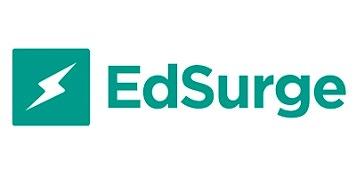

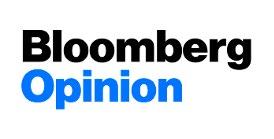
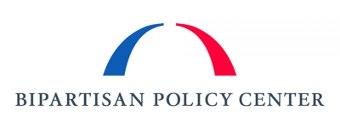
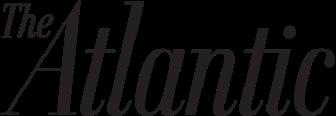


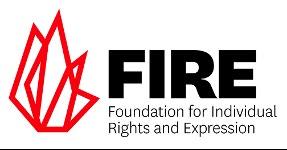
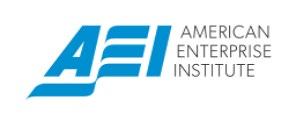
Bringing Heterodox Academy’s (HxA) mission to the public and higher education professionals requires us to be the leading expert source on topics of viewpoint diversity, open inquiry, and constructive disagreement. The work of the HxA team and our members being cited in the media is a strong indicator that we’re being seen as thought leaders in our organization’s areas of focus. HxA was mentioned 109 times across 85 unique media outlets in FY2022.
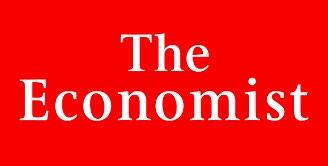




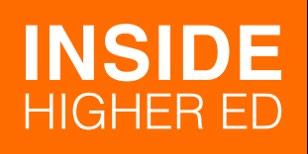

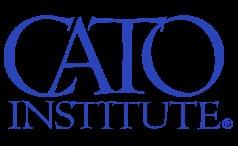
Heterodox Academy’s (HxA) online presence is a foundational medium through which we reach audiences. Across our platforms, HxA’s content, including the work of our members and their voices,
259,000 visitors reached through our site
667,000 page views by HxA members and the public
18% of our website traffic comes from social media
188,000 views of HxA blogs
41 blogs disseminated to the broader public on our channels
50 voices amplified on the blog
Heterodox: The Blog
123,000 downloads of our podcasts by the public
28 voices amplified on the podcast
Heterodox Podcasts
14,000 total readers of our weekly newsletter
10,000 nonmembers reading our newsletter
reach our members, amplify their voices, and bring our mission to the broader public and scholarly voices, was viewed more than 13 million times in 2022.
58,900 followers
11,126,000 impressions of our tweets to the public
321,000 engagements with our tweets from the public
11,500 followers
210,000 video views of HxA content
42,000 hours of HxA content watched
13,200 followers
1,015,000 impressions of our posts to the public
92,000 engagements with our posts from the public
2,400 followers
248,000 impressions of our posts to the pubic
7,300 engagements with our posts from the public
3,200 followers
60,000 impressions of our posts to the public
6,200 engagements with our posts from the public
The 2022 Heterodox Academy Conference hosted in Denver from June 12 to 14 provided a space for 500 attendees to explore ideas and solutions related to a core problem facing higher education today: a loss of trust in our institutions of higher education.
Our plenary sessions and concurrent panels gathered scholars an d practitioners who are committed to the health of our academic institutions. Our programming this year focused on rebuilding trust in our educational institutions. Our panelists addressed this theme from the microcosm of a syllabus to the macrocosm of the national media, from the nuances of research to the big-picture decisions of campus leadership, and from the smallest of individual actions to the broadest of policy changes.
The conference offered seven skill-building workshops for attendees:
The HxA Way and K–12 Classrooms: Designing for Success, led by Samantha Hedges
Neither Obstacle nor Obsolete: Religion as an Untapped and Powerful Tool for Bridge-Building, led by Noah J. Silverman
Cultivating Collaboration Among Diverse Stakeholders, led by Deb Mashek
Implementing the Campus Expression Survey, led by Shelly Zhou and Steven Zhou
Get Out of Your Rut! How to Build a Professional Support Group, led by Kyle Sebastian Vitale
The Joy of Heterodoxy, led by Liz Joyner
What Progress Really Looks Like: Weighing In for a Liberal Approach to Social Justice, led by Elizabeth Spievak and Michael Burke
The conference also featured 25 talks and six panel discussions with four plenary sessions: How to Be a Winsome Disrupter, with Kyle Sebastian Vitale
Renewing Trust: Truth, Journalism, and Higher Education, with Holden Thorp, Rich Lowry, Matthew Yglesias, and Batya Ungar-Sargon; moderated by Scott Jaschik
Courageous Leadership in Times of Distrust: A Presidential Panel, with Michael Roth, Lynn Pasquerella, and Roslyn Clark Artis; moderated by Shirley Mullen
How to Have Conversations That Work, with John McWhorter and Glenn C. Loury; moderated by Erec Smith
The HxA conference dares us to discover whether an academic community of trust, mutual empowerment, and respectful shared inquiry can inspire rigor and motivate our efforts as effectively as fear of looking foolish or failing to make the grade.


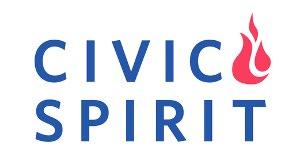







Academy Conference was proud to host a variety of organizations that share our goals and are doing essential work in related spheres.

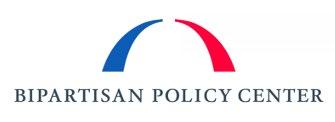


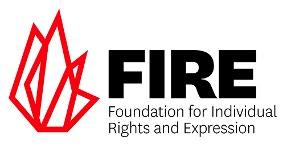
The 2022


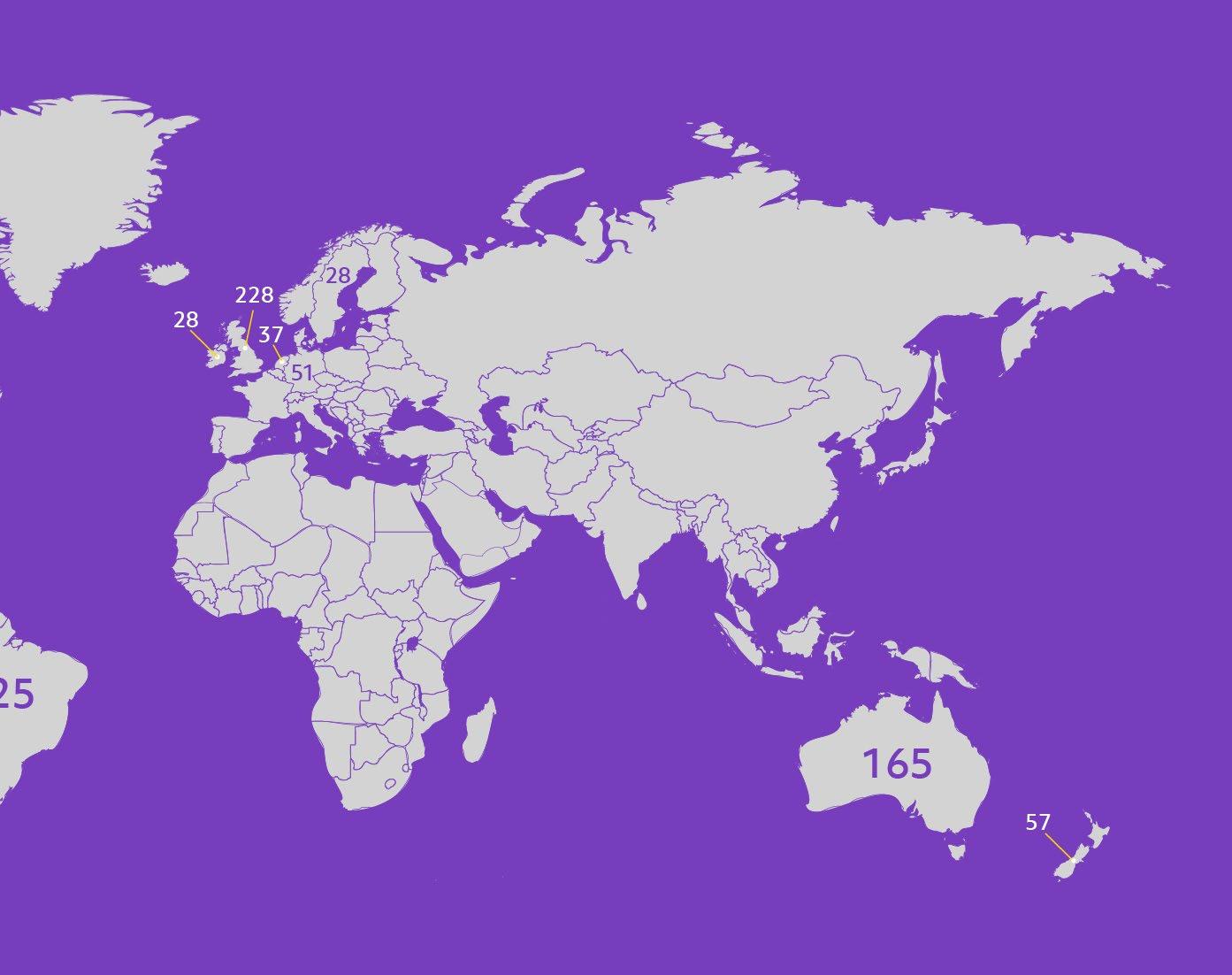
In August 2022, we launched the HxA Portal on our website. Through the portal, members and HxCommunities are able to network and collaborate with the glob al HxA community about research opportunities, job openings, publications, resources, mentorship, and other items relevant to HxA’s mission.
In the first month of launching, more than 1,500 members engaged with the portal; by the end of December 2022, more than 2,300 members have logged in and made more than 2,600 posts.
Positive change in any complex system or institution requires people to stand up and lead by example. This not only has an immediate and local impact, but it also helps spread awareness, provides models for others to follow, and creates permission for others to stand up as well. HxA membership is a meaningful commitment precisely because it is public.
In November 2021, HxA relaunched our membership directory to help scholars connect and collaborate with others in their field, students find faculty on their campus who are committed to HxA values, and journalists identify scholars who may be doing particularly interesting or compelling work.
Heterodox Academy (HxA) hosts a variety of virtual and in-person events throughout the year, ranging from panel conversations on pressing topics across the academy to skill-building workshops for our members and student affiliates. Through the work of our events, we aim to equip attendees with diverse perspectives on a range of issues, teach and model The HxA Way, and give a platform to our members to amplify their voices . Across FY2022, we hosted 45 events for our members and our supporters, reaching more than 3,000 attendees.
Constituting Knowledge, Knowing Truth: A Conversation with Jonathan Haidt and Jonathan Rauch

September 21, 2021 | Virtual Public Event Viewed
20,700 times with 6,200 watch hours in FY2022
Why Our Brains Deceive Us (and How to Think Better):
A Conversation with Julia Galef

December 6, 2021 | Virtual Public Event Viewed
2,200 times with 415 watch hours in FY2022
Member Spotlight:
Why “Knowledge” Is a Dirty Word in K–12 (and What We Can Do About It)
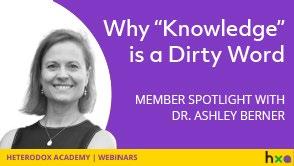
December 8, 2021 | Virtual Public Event Viewed
2,200 times with 402 watch hours in FY2022
Social Justice Movement Ignore Marginalized Voices

April 20, 2022 | Virtual Public Event Viewed
4,600 times with 1,400 watch hours in FY2022
Heterodox Communities help facilitate connection among HxA supporters who want to advance HxA values within a shared discipline or academic setting. Each HxCommunity is led by a member (or “moderator”) who coordinates events and activities for their HxCommunity. HxCommunities also use the HxA Portal to constructively discuss research and ideas, provide peer support to one another, and share resources and events relevant to HxA’s mission.
HxAnthropology
Moderator: Dan Eisenberg, Associate Professor of Anthropology, University of Washington-Seattle Campus
HxAustralia
Moderator: Alan Davison, Dean, Faculty of Arts and Social Sciences, University of Technology Sydney
HxBuilt Environment
HxCalifornia
Moderator: David Gonzalez, Assistant Professor of Public Administration and Organizational Leadership, University of Massachusetts Global
HxCanada
Moderator: Andy Sellwood, Instructional Associate, Vancouver Community College
HxClassics
HxCommunication
Moderator: Lindsay Hoffman, Associate Director of the Center for Political Communication, Associate Professor of Communication, University of Delaware
HxCommunity Colleges
Moderator: Mark Urista, Communication Faculty and Civil Discourse Program Advisor, Linn-Benton Community College
HxEast Asia
Moderator: Shaun O’Dwyer, Associate Professor, Faculty of Languages and Cultures, Kyushu University
HxEconomics
Co-Moderator: Ashley Hodgson, Frank Gery Associate Professor of Economics, St. Olaf College
Co-Moderator: Monica Capra, Professor of Economic Sciences, Claremont Graduate University
HxEnvironmental Engineering and Science
HxHealth Professions Education
Moderator: Jonathan Thigpen, Associate Professor, Assistant Dean for Curricular Innovation and Professional Development, Samford University
HxHigher Ed Leadership
HxHumanities
2,564 26 95 Participants
HxCommunities Events and Projects

Co-Moderator: Marc Blitz, Alan Joseph Bennett Professor of Law, Oklahoma City University
Co-Moderator: Kristen Osenga, Associate Dean of Academic Affairs, Austin E. Owen Research Scholar and Professor of Law, University of Richmond
HxLibraries
Co-Moderator: Sarah Hartman-Caverly, Assistant Librarian, Pennsylvania State University-Penn State Berks
Co-Moderator: Craig Gibson, Professor and Professional Development Coordinator, The Ohio State University
HxMid-Atlantic
Moderator: Shannon McQueen, Assistant Professor of Political Science, West Chester University
HxNewZealand
HxNYC
Moderator: Quentin Langley, Adjunct Faculty, Fordham University
HxPhilosophy
HxPolitical Science
Moderator: James Davenport, Associate Dean for Social Sciences, Rose State College
HxPsychology
Moderator: Tania Reynolds, Assistant Professor of Psychology, University of New Mexico-Main Campus
HxRhetoric and Composition
Moderator: Erec Smith, Associate Professor of Rhetoric, York College of Pennsylvania
HxSociology
HxSTEM
Co-Moderator: Dorian Abbot, Associate Professor of the Geophysical Sciences, University of Chicago
Co-Moderator: Anna Krylov, Professor of Chemistry, University of Southern California
Co-Moderator: Luana Maroja, Professor of Biology, Chair of Biochemistry and Molecular Biology Program, Williams College
HxUndergrads
In January 2023, we announced our inaugural cohort of HxA Campus Communities at 23 institutions across the United States and Canada. The HxA Campus Community Network aims to empower and support HxA members on each campus to build a community of academics who promote the values of viewpoint diversity, open inquiry, and constructive disagreement. Each Campus Community is led by two or three HxA member co-chairs who organize events, host monthly gatherings, and collaborate with campus leaders to improve institutional practices and culture on their campus. This new initiative is an exemplar of how our work at HxA is increasingly focused on campus-based work in collaboration with our members.
Visit heterodoxacademy.org/campus-communities/ to learn more.
FY2023 will see the fourth installment of our Annual Campus Expression Survey, which has served as a foundational piece of research to understand and be nchmark student campus culture around viewpoint diversity, open inquiry, and construct ive disagreement. We have plans to significantly expand HxA’s research capacity to drive the development of our organizational activities and impact.
Heterodox Academy is impactful because of our members and their commitment to promoting HxA values in their professional activities on their campuses and within their disciplines. Building off our prior successful membership initiatives, including HxCommunities and the HxA Portal, FY2023 will see continued intensive development of our membership experience online and on campus. We are more powerful as we grow; with more members, we can achieve continued positive change.
Heterodox Academy is the world’s largest member organization of university professors and administrators committed to promoting the ideals of viewpoint diversity, open inquiry, and constructive disagreement in higher education.
If you support the HxA values and work in higher education or are a student, you may be eligible. Become a member and join your 5,500 peers who are dedicated to improving academic culture.
Become a member today: https://heterodoxacademy.org/join/
Heterodox Academy is a 503(c) nonprofit and relies on the generosity of individual supporters, donors, and foundations to support our work.
Support our vision of an academy where viewpoint diversity, open inquiry, and constructive disagreement are welcome and explicitly valued to improve the quality of education and research, and drive positive culture change on campus.
Donate today: https://heterodoxacademy.org/donate/
Sign up for our Weekly Bulletin newsletter to stay on top of mission-related news, the latest content from HxA, and upcoming events.
Subscribe now: https://heterodoxacademy.org/subscribe/
Join the conversation online across our social channels: